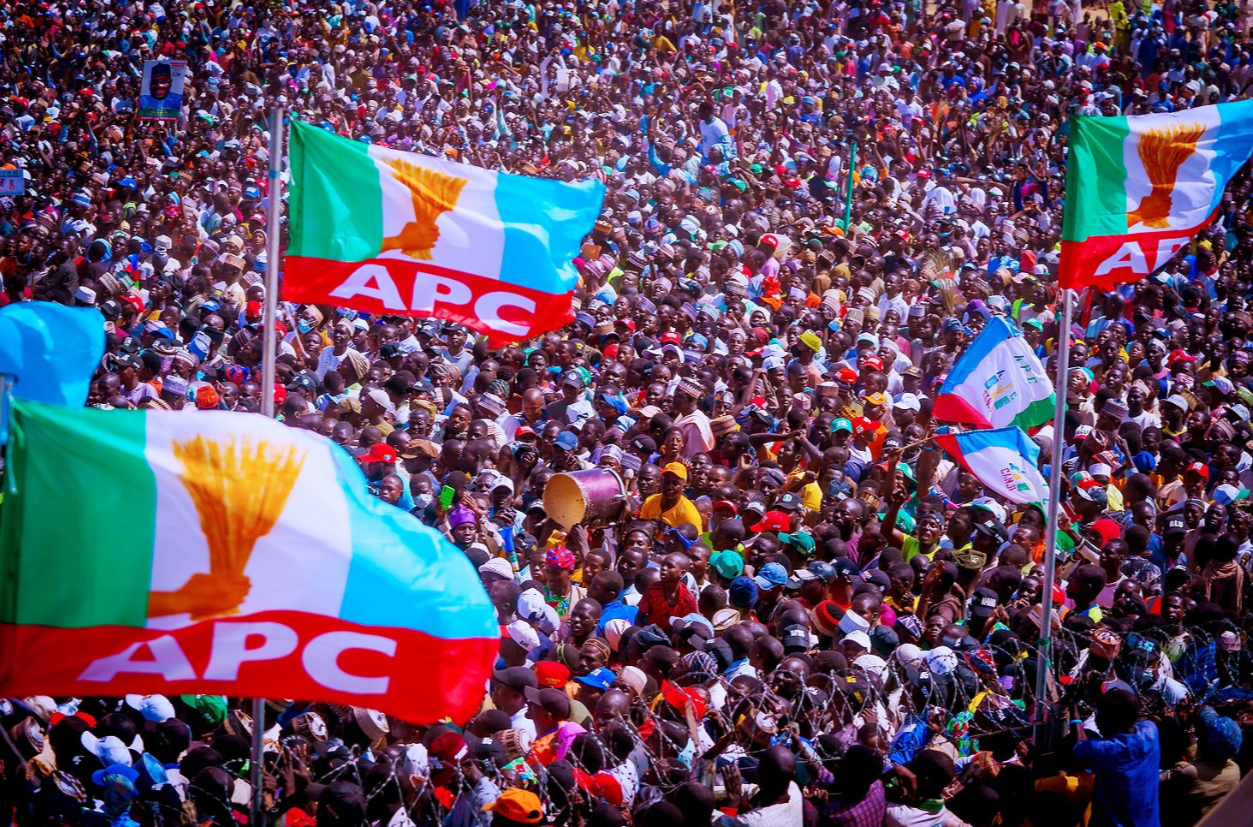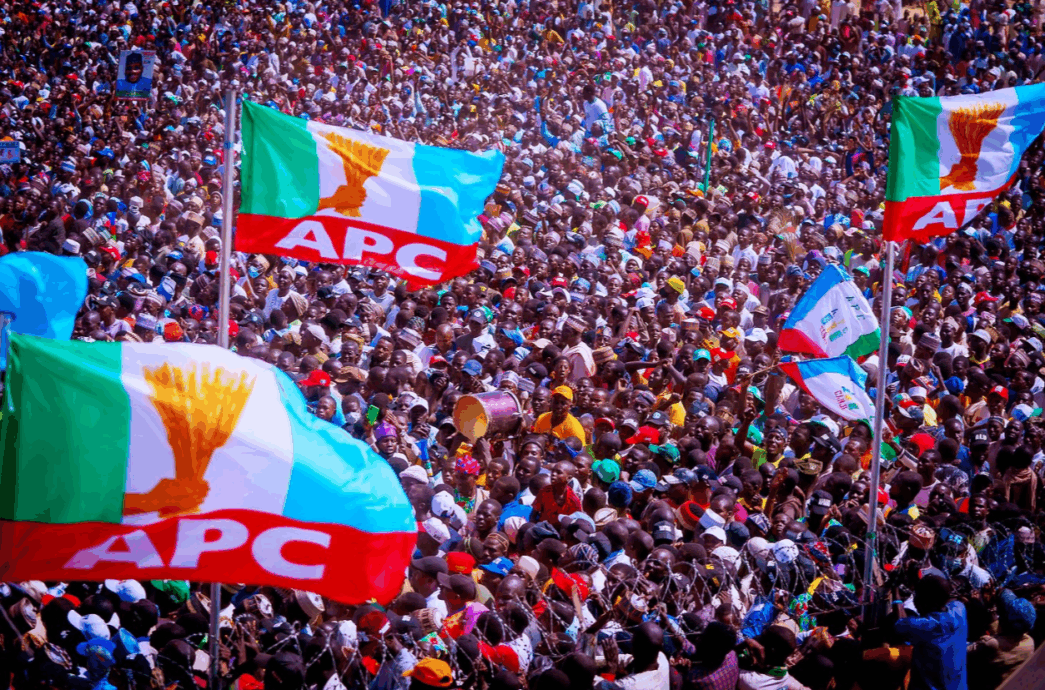As Samuel turned,
Saul seized his garment,
and it tore!
Then said Samuel,
“Thus is your kingdom torn,
and given to your neighbor.”
— (The Good Book)
The “torn garment” in the lines above is symbolic of a ruptured authority between divine mandate and human leadership.
I draw a metaphorical parallel between Saul’s story and former President Obasanjo’s dramatic exit from the Peoples Democratic Party (PDP), where he tore his membership card in 2015. That era marked the party’s descent into an inglorious journey.
In recent weeks, pundits have recounted the state of the PDP’s fragmentation and the recurring fear of our collective descent into a one-party state in light of the recent gale of defections into the APC from the opposition camps. In the PDP, Minister Wike is accused of playing the fifth columnist, and President Tinubu is accused of being the party usurper. This may not be the whole truth, similar to the accusation made against Obasanjo after the collapse of the Alliance for Democracy (AD).
Advertisement
Today, in this narrative, the APC is the hero, the PDP the villain, and Nigerians the victim as the nation slides into a one-party state.
When the story of the PDP is told, it should be a best-seller on how not to run a party—a compelling read about the fate of a committed mother with unfaithful children. In this reflection, I examine the state of the PDP, the cultural and socio-psychology of parties, and the lessons we can learn from our history.
The Charismatic Core of Nigerian Politics
Advertisement
First, let’s establish the fact that Nigerian political parties—like religious and social groups—revolve around charismatic figures or networks of elites for sustenance. This has an element of culture and tradition for us.
For instance, our history reveals kingdoms and empires woven around charismatic leaders. The Oyo Empire under Alafin Abiodun, Kanem-Borno under Idris Alooma, and the Sokoto Caliphate under Uthman Danfodio—all were at their height under these rulers.
Similarly, our church movements (especially Pentecostal megachurches) and Islamic movements and Sufi orders usually grow under charismatic teachers. Our political parties are no different.
The First Republic saw political parties hinged on individual figures: the Action Group (AG) around Obafemi Awolowo, the Northern People’s Congress (NPC) around Ahmadu Bello, and the National Council of Nigeria and the Cameroons (NCNC) around Nnamdi Azikiwe. A similar pattern was seen in the Second, Third, and Fourth Republics.
Advertisement
The Rise and Fall of Parties
Second, political parties—like other Nigerian institutions—often rise and fall with the ascendancy, demise, or exit of charismatic figures often marked by internal wrangling among elites for leadership control. History will record Obasanjo’s time in power as the heyday of the PDP. His exit from power in 2007 began a slow journey for the party into its present state. President Umaru Yar’Adua’s ill health and death was the apex point.
Obasanjo combined both instruments of coercion and a Machiavellian style in dealing with the party’s hierarchies, marrying the different interests together, earning both loyalty and contempt at the same time.
President Jonathan was politically vacant and emotionally divested from the party both in and outside of office.
Advertisement
However, when President Jonathan took over the party, it began a rapid walk into crisis and internal wrangling, characteristic of a missing forcefield for party cohesion. He literally vacated the space when he lost the 2015 election. Meanwhile, the party only witnessed a fragile stability before the 2019 election when the New PDP (led by Saraki) returned, and the Atiku-Obi ticket gave it a new life. That was only temporary. It went into slumber again and experienced internal wrangling before and after the 2023 election.
Yet, the fragmentation we see in the PDP is similar to what was seen in the AD in the Fourth Republic when the likes of Chief Bola Ige and Bola Ahmed Tinubu left the party. As a corollary, Obasanjo was accused of grounding the AD in some quarters, just as Tinubu is being accused today.
Advertisement
Contrast this situation with the APC in the last eleven years, where the late Buhari enjoyed a perceived moral authority among the CPC bloc, and Tinubu’s unquestionable political skills among the ACN bloc act as the magnetic field. At the moment, that party is relatively stable compared to others owing to Tinubu’s political deftness.
Neither Atiku, Obi, nor others who have left the PDP have demonstrated the individual capacity to manage any party alone, and the needed capacity to work together. Pundits have argued that without a collaboration among this network of elites, the All Progressives Congress (APC) is on a free kick in 2027.
Advertisement
The Path Forward
While we are yet to transcend this phase of our democratic journey to a situation where our political parties become stable and institutionalised bodies, we will continue to witness a crisis of succession and internal wranglings. But party discipline, ideological loyalty, and transparency are areas that will help our political parties as we move forward. In conclusion, now that the PDP’s garment is torn, APC beware! The PDP’s story is a parable for others.
Advertisement
Ariwoola Samuel Akinwale wrote this piece from Lagos. He can be contacted via [email protected]
Views expressed by contributors are strictly personal and not of TheCable.


